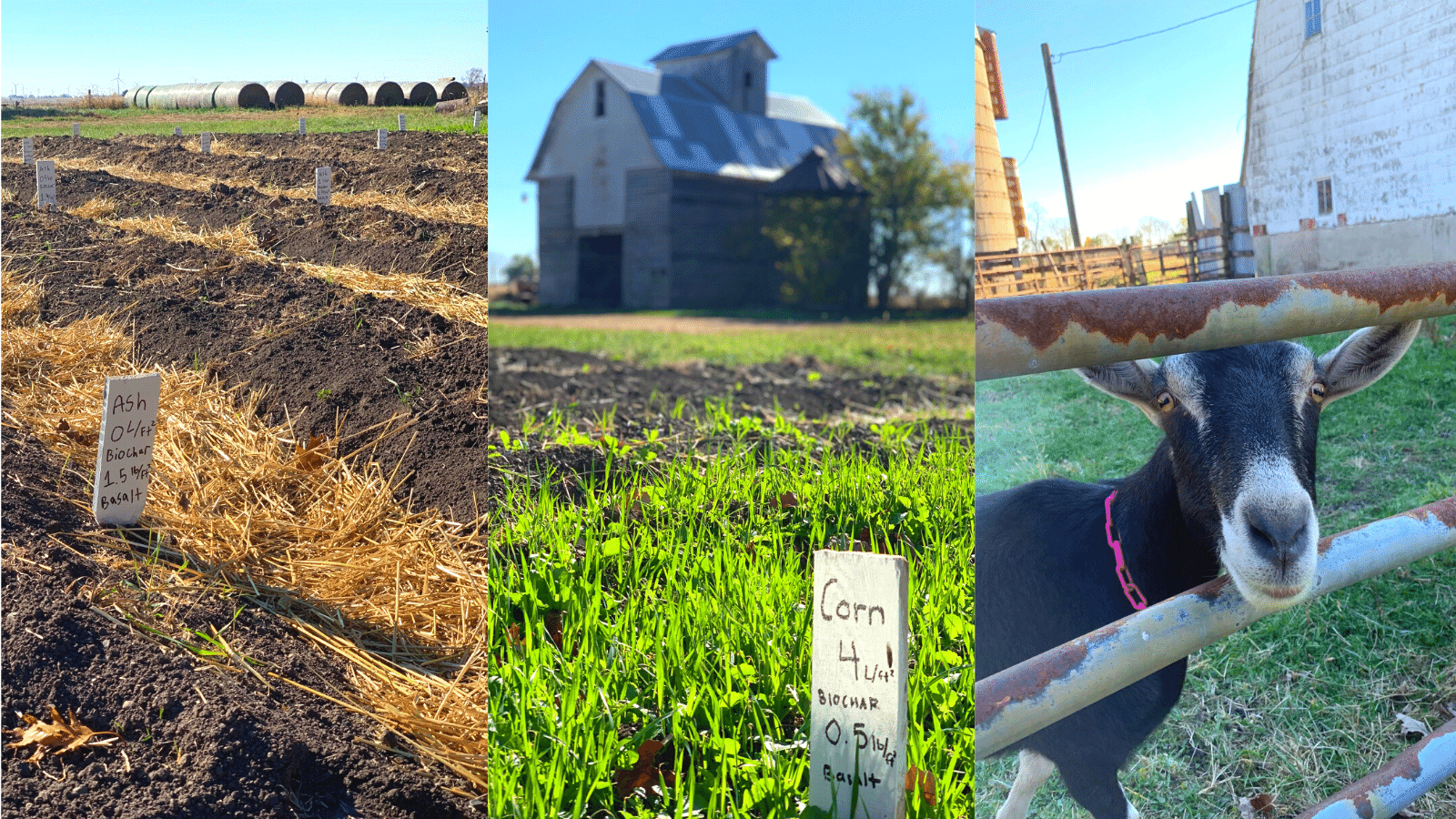
Why Our Work Is Needed
While the agricultural sector alone currently accounts for 9% of total US greenhouse gas emissions, regenerative agriculture and other farming practices that proactively sequester carbon can reduce more carbon dioxide than in any other sector. Food and agriculture solutions, including regenerative agriculture practices, can provide approximately 30% of total global climate mitigation, through both emissions reduction and carbon sequestration. This rate is far more than other sectors’ rates, including those of electricity, transportation, materials, and the built urban environment.
After being passed down to their current 6th generation of farmers, the family of Zumwalt Acres (ZA) in Sheldon, Illinois, is seeking to implement innovative regenerative practices on their farm. In partnership with Delta Institute, Zumwalt not only stands to benefit from the environmental and economic benefits that regenerative agriculture offers, but the family can also position themselves as regional leaders and advocates for creating a healthy and sustainable agriculture system in Iroquois County, East Central Illinois, and the greater Midwest. By transitioning their multi-generational family farm of woods, beef cattle pasture, and corn/soybean row crops into an agroforestry-based, carbon-smart farm, Zumwalt can serve as a proof-of-concept model for regenerative agriculture, ultimately encouraging surrounding farms to incorporate similar practices.
Brief Overview of What We’re Doing
Delta provided ZA with strategic guidance as the farmers and land stewards considered different regenerative agricultural practices on their land; per ZA, one unintended outcome from this project was the reworking of our organizational structure and creation of new areas of work, with a heavy focus on apprentice education. Additionally, efforts that were accomplished during Delta’s and ZA’s collaboration included:
- Business Planning and Strategy Development: Delta created a comprehensive pro forma that incorporates all the crops and other activities at ZA and breaks down the revenue and expense projections over a several year period to scenario plan what crops and activities will yield positive revenue and calculate expenses. Delta provided technical and strategic support in identifying funding sources and providing guidance on proposal framing.
- Basalt Application: By applying 130 tons of crushed basalt rock to 12 acres of hay and 8 acres of conventional corn, roughly 20 tons of CO2 with 42 tons over the next decade were captured based on model estimates with our utilized grain size. More precise estimates of capture rates for modeling in both our proposed Years 2-3 and beyond are being examined while also monitoring changes in soil emissions, chemical soil composition, and crop yields to investigate optimal application rates.
- Biochar Creation: We converted 5,000 kg of hardwood to 1500kg of biochar. Following inoculation with compost tea, we re-integrated the biochar into the soil as an amendment for trees, shrubs, and vegetables. We were awarded a SARE grant to investigate pairing agroforestry establishment with biochar production.
- Agroforestry: We planted 800 trees in an 850 ft shelterbelt which was funded in part by the NRCS cost-share program. These trees were grown alongside our transitionary hay field in an alley-cropping system. We planted 266 trees in the ZA food forest. These trees will sequester approximately 100 tons of CO2 annually upon maturity.
- Apprentices: We received 70 applications and hosted 25 farm apprentices, who are engaged in crop planning, horticultural cultivation, agroforestry establishment, soil science research, organizational development, and community building. Pre- and post- apprenticeship surveys indicate sizable technical and regenerative agriculture skill development.
A diversified regenerative farm needs complex planning tools: with ZA activities not only focused on transition to a regenerative system, but there was also a need to development tools to assist with helping capture all the other important activities that are ongoing. The first step in the process was completed by the development of the pro-forma; however, more tools and planning are necessary to support the scaling up and regional impact from the apprenticeship program, education and outreach activities, and overall community building.
Partnerships
Delta is grateful to our friends at Zumwalt Acres for partnering and growing, pun intended, with us. We are also grateful to the Lumpkin Family Foundation who provided generous support for our Year One efforts.
Zumwalt Acres and BOOST 2020
ZA’s emphasis on sustainability-focused business planning resulted in their farm being awarded with Delta’s annual BOOST award and $5,000 unrestricted grant in November 2020. We are thrilled that since then, ZA has continuously grown, serving as a regional model for conservation-based agriculture on Illinois working lands. We look forward to seeing many more accomplishments from them in the years ahead.

